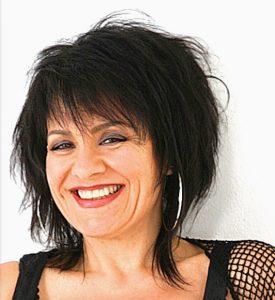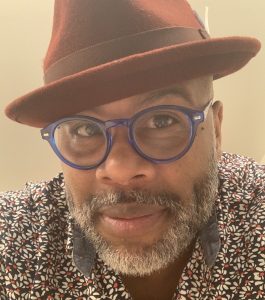How Important Is It to Have a Director? Here Are What a Few Directors and Artists Have to Say
Article #12 in The New Cabaret Artist’s Handbook.
Part Two of Shellen’s Lubin’s discussion on the importance of directors in cabaret.
I hope you’ve figured out from the “shopping list” of directorial tools and qualities that I noted in Part One of this article that each director brings their own skill set and perspectives to the table. For this second half of the article, I spoke with a number of directors who have different backgrounds and ways of working, and with singers who have worked with them as well.
Barry Kleinbort

Barry Kleinbort has worked with a number of luminaries, including Anita Gillette, Penny Fuller, Karen Mason, and Lorna Dallas. Barry says the most important quality for a director is trust. Performers need to be able to trust that their director has their back. He says that directors “have to understand that they are as much a mediator as they are an innovator,” and that it is their responsibility to observe the working relationships of all involved, and to mediate all communications. He talks about being sensitive to the artist, to glean who’s in there and what it costs—not financially, but emotionally— for the performer to put themselves out there. Kleinbort always tells cabaret artists, “If somebody else can get up and do your act, then you’re doing something wrong.” He always wants to maximize the individuality.
When I asked him what the difference is between directing for theatre and cabaret, Kleinbort stated that he feels there’s really only one major difference between the mediums: the fact that there’s no fourth wall. In cabaret, it’s “I see you, you see me, now let’s get down to business.”

Kleinbort also brings his knowledge as a composer, an actor, and a theatre director, to the process, from the many different stages of his work. What has he learned most over the years? A sense of order—how to place material to the greatest effect—and how to read the audience response. Karen Mason says “Barry’s brilliance is in his ability to clearly know how to make me shine, while also challenging me to try new things….his ability to collaborate, to listen, to guide.” She also mentions his kindness, and then adds, “and Barry knows more songs than any person I have ever met.”
Lina Koutrakos

Another director who has a wealth of material at her fingertips is Lina Koutrokos, who is a terrific cabaret performer in her own right as well as a director of numerous other artists. The early part of her career was spent waitressing at Don’t Tell Mama, Koutrakos states, where she soaked up and analyzed every singer and every show, trying to figure out what works and what doesn’t. She performed in rock clubs for about ten years. Because of those times, she notes, “I think I know every song ever written.” She is devoted to the solo expressionist, and now works almost exclusively in cabaret. When she first starts to work with an artist, she prefers hearing a lot from the person without giving any input. Then she’ll ask for a list of songs without any second-guessing. She likes to let the performer wash all over her before she starts to direct them, allowing them to “make a mess out of it at the beginning.” If Koutrakos doesn’t start this way, she doesn’t feel like she’ll really get to know their voice, who they are, and what they want. The way the process remains fun and adventurous for Koutrakos is by not laying out a directorial formula but, instead, finding a way for her artists to be their authentic self onstage while keeping it entertaining.

Most important for Koutrakos is listening, and also being very intuitive—which somewhat comes from having been an army brat and developing the ability to morph with people. She considers herself the editor, because, “If I’m the editor, the performer can remain the creative.” As a director, she directs everything—songs, patter, movement—to make it feel both seamless and authentic.
The night of the show, she’s the “lady in waiting,” doing whatever is needed to make the show run beautifully, from lighting charts to handling the audience. Mary Sue Daniels says about Koutrakos, “She doesn’t try to clone her style or abilities. She sees you as you are and helps you to dig down deep into your heart to identify what the song means to you, building a solid emotional infrastructure.” Daniels adds that with Koutrakos’s “depth and specificity as an underpinning,” artists can “soar to the best of their abilities and give truly unique performances.”
Gerry Geddes

Gerry Geddes has directed numerous individual and group shows (He also is a member of the Bistro Award Committee.) He says that “the best cabaret singing comes from the storytelling and the acting—from the singer inhabiting the character in the song.” His direction follows the performance philosophy of the great acting coach, Stella Adler, but he rarely tells the singers that because to call it acting could be intimidating unless the performer comes from theatre. Over the years he has learned how important it is to be psychologically nurturing, to provide a safe environment in which the singer can emotionally disrobe and trust that the director has their best interests at heart. The singer also needs to trust that the director’s personal agenda is not being forced on the performance. In this way, they can rid themselves of whatever baggage and walls that they bring into the project. Geddes notes, “When I am directing, I am the ultimate audience member, and I want the show to become one that I would enjoy and applaud if I were sitting in the cabaret. And I want the person onstage to be so in touch with themselves that, along with the environment, the show itself is a nurturing experience and that the endeavor will help them to grow as an artist, and as a person. I want them to get to know themselves better as they satisfy a desire they may have had their entire lives.” If Geddes talks to a performer backstage after a show he wants them to be the same person (and the same persona) he has just watched on stage.

A director often ends up being the writer, the stage manager, the costume designer, and even assists with the lighting, the sound, and the musical direction. Geddes points out, “The more you work with someone, the more entwined you become with them, and you often find that you can write for them in their voice.” Ideally, he loves to be involved from the inception of a show and help in its creation rather than just doctoring a piece that already exists. Moira Danis, who has been directed by Geddes, says he is a brilliant collaborator because he “consistently challenges me with a rare gem of a song, suggests a change in the style or structure to heighten/deepen the emotion, pinpoints a lyric and asks, ‘Have you thought about it from this perspective?’ while guiding me in making the song my own.”
Kevin R. Free

Kevin R. Free has directed theatre, musical theatre, and awards shows, as well as cabaret and concerts. I asked him about the differences in directing for each genre. Generally in a theatre piece, Free notes, performers are trying to disappear into characters, and so the direction is very different. Also, in theatre, one doesn’t acknowledge that there’s an audience, and so the theatre director doesn’t think about the audience in the same way. In cabaret, the audience is such an important element in the performance. Therefore, cabaret is the only medium where Kevin finds himself thinking about the audience a lot, what their experience of the piece is, and he allows all this to influence his work.
Free loves to surprise audiences. When directing a cabaret act, he finds something that can be a real surprise late in the show, when the audience feels like they know just about everything about the performer. Free will have the performer do something that the audience doesn’t expect, even something that’s shocking. He loves for the audience to discover that the performer can do something completely different, or sing a song that one would never expect them to sing, and hopefully bringing the audience to experience the artist in a whole different way.
Working with a solo performer, Free finds that it’s important to learn to deal with ego and their expectations of what they can do, massaging them to get them to do something new and/or different. There’s a lot of “hanging out” time, in order to make the artist feel completely comfortable. For Free, the ideal show is when the audience member feels like it’s a concert just for them—a truly, intimate experience—so the process needs to be just as intimate as the show.

He points out that the director is the one who needs to create a community of intimacy for the performer and the musical director. A director needs to learn what the artist’s resistances are—whether they don’t want to do something, can’t do it, or are just uncomfortable. That helps him to know when to push and when not to push.
Sunita Param knew, when she decided to do her one-woman show “The Little Brown Girl Finally Gets to Sing,” that the only person she wanted to direct her was Free. “He was instrumental in helping me to craft and hone the story I wanted to tell and in choosing the repertoire. He showed me the importance of looking at the lyrics [by] breaking them down, line by line. He helped guide my storytelling through the patter, to help me create a clear throughline. His imagination and ways of looking at text opened my eyes to different interpretations. He created a safe, supportive space for me to play without fear of judgment. His enthusiasm was everything and was contagious.”
Tea Alagić

Tea Alagić is primarily a theatre deviser and director who loves throwing herself into things when she doesn’t know what to do with them. This has been throughout her life. She is Croatian—originally from Bosnia-Herzegovina—and is multi-lingual, having come from her home country to America by way of Berlin, Germany. She became obsessed with the cabaret form in Berlin—where it’s dark, and funny, and political—and then when she was running the Yale summer cabaret. Not being American, she feels she is always learning about the very American theatrical and musical forms, but trying to figure things out is her favorite place to be. She says, ‘When you’re a deviser, you come with something you’re interested in, even if you don’t know what it means, but you’re trying to explore that until that something informs you what it’s going to be. I like that journey.”

Since English is not her first language, Tea finds that her first way into understanding a song is through the music: “Sound, rhythm, and tempo.” She looks at the whole piece as a musical composition. She is therefore, not surprisingly, drawn to unusual pieces and unusual modes of expression. When she directed Elfriede Jelinek’s Jackie for WP Theater, she notes that it felt like cabaret in the way individual pieces were woven together to become a whole. She loves physical theatre, where directing is driven mostly by gesture, visual images, and emotional and physical expression. “Sometimes you can speak in gibberish for me and I will be able to see if it works onstage, because I’m looking at those components.”
Tea directed Daniel Alexander-Jones in his Book of Daniel (which was developed together from first idea to performance), and then in Jones’s Black Light (Daniel as Jomama Jones). Alexander-Jones says about working with her, “Tea Alagić is a profoundly gifted director. She creates with the embodied grace of one who has known the deepest shadows of human behavior, yet has consistently moved toward the light. She directs with precision, persistence, and wisdom. And, she has the best laugh in the world.”
*****
A few of the singers I spoke with talked about their director’s smile, laugh, joy, and/or sense of humor, even though none of the directors mentioned that as a requisite quality. It makes perfect sense that it’s a necessity, because directors often feed artists with passion and energy when the artist’s “joie de vivre” may be lagging, and that requires a huge amount of delight in the process. A number of the directors did talk about being a therapist in a way. However—as I have often said to artists who I am directing—in the rehearsal room, the objective of all self-reflection and revelation is fundamentally different. In therapy, the objective is to change habits and dynamics in your life, which may or may not ever be fully enacted. In the creation of an artistic project, the objective is the work, and it is fully realized with the completion of the piece. There is always a fruition and a catharsis, and it is of great value to have that and to remember that.
As I said about musical directors, and as I stated in Part One the other week, it is important that you work with a director who is both sensitive to your needs and who has the tools and techniques to meet those needs. It is also important that they understand what you do and don’t want and expect from them. The more you understand what you need, the more easily you will find the right fit. And the more you have trust in your director, the more you will know—that the direction in which they are leading you is a place of worth and value for you to go.
About the Author
Shellen Lubin is a veteran of both the cabaret and theatre worlds as a director, songwriter, performer, and voice and acting teacher/coach; she has directed the Bistro Awards for the last eight years. She is currently director/dramaturg in development with projects by Lanie Robertson, Stuart Warmflash, Amy Oestreicher, and more. Proud member of SDC and most unions and guilds in the theatre industry; Co-President, League of Professional Theatre Women; Past President, Women in the Arts & Media Coalition; Chair of the National Theatre Conference's Women Playwrights Initiative. She writes a weekly think piece read by thousands called "Monday Morning Quote." www.shellenlubin.com, www.mondaymorningquotes.com, @shlubin




